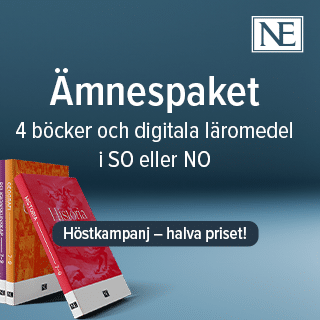Social skills group training for children and adolescents with autism spectrum disorder
Nora Choque Olsson har i sin avhandling undersökt hur effektiv gruppträning av sociala färdigheter (SSGT) är för barn och ungdomar med högfungerande autism (HFASD) och psykiatrisk samsjuklighet.
Nora Choque Olsson
Professor Sven Bölte, Karolinska Institutet
Professor Per Gustafsson, Linköpings universitet
Karolinska institutet
2016-03-18
Social skills group training for children and adolescents with autism spectrum disorder
Institutionen för kvinnors och barns hälsa
Social skills group training for children and adolescents with autism spectrum disorder
The overall aim of this thesis was to examine the efficacy and effectiveness of social skills group training (SSGT) in children and adolescents with high functioning autism spectrum disorder (HFASD) and psychiatric comorbidity.
Prior to the trial, a systematic review was conducted on the effectiveness of randomized controlled trial (RCT) of SSGT. In addition, evaluation of two tools (Developmental Disabilities Children’s Global Assessment Scale [DD-CGAS] and the OSU Autism Clinical Global Impression [CGI-S]) used in the trial, was performed. Sixteen vignettes of 8 clinical patients with HFASD and psychiatric comorbidity were rated by 16 clinicians. The trial was conducted based on the convergent mixed method approach (quantitative and qualitative). The quantitative, a multicenter pragmatic randomized control trial (PRCT) included a total of 296 children and adolescents with HFASD and psychiatric comorbidity aged 8 to 17 years. They were randomly assigned to an experimental (KONTAKT+ treatment as usual [TAU]) and a control group, TAU only. The qualitative study included 11 participants (6 high responders and 5 low responders) from the experimental group and their parents were interviewed and a qualitative responder analysis was performed.
The results showed a lack of information about recruitment, comorbidity, treatment providers, settings, and limited eligible population. The intraclass correlation coefficients (ICCs) for experienced clinicians were .75 for the DD-CGAS and .72 for the OSU Autism CGI. Among inexperienced clinicians, these ICCs were .58 and .59 respectively. The multicenter PRCT showed positive effects in experimental and control groups in social responsiveness skills. The experimental group showed a significant effect on social cognition, maintained after 3 months (B=-1.33, Z=-1.44, p=.02), but no effect according to blinded teacher ratings. Adolescents in the experimental group showed better results (B>- 8.34, Z>-2.54 p< .001) for social responsiveness compared with the child group, particularly in social communication, but again not for blinded teacher ratings. Several secondary outcome measures identified improvements following SSGT. The qualitative study showed improvements in several areas of social skills. Even low-non-responders showed gains after treatment. Effectiveness studies are lacking that use RCTs for SSGT. Reliability is better for experienced vs less experienced clinicians for DD-CGAS and OSU Aut CGI. SSGT- KONTAKT can be successfully implemented in “real-world” clinical health care. Time effect for both KONTAKT+TAU and TAU are positive. A significant effect on social cognition in the experimental group was found. When compared to children, adolescents showed a greater positive effect in social communication, social motivation, and social cognition, whereas children had better effects in terms of everyday functioning, and symptom severity. Parents of children showed decreased stress, but no changes in perceived stress were identified among the children and adolescents after treatment. More efficacy and effectiveness studies on SSGT using convergent mixed methods (quantitative, qualitative) are needed before any robust conclusions can be drawn.
Relaterade länkar

Fritidshem
 Åk F–6
Åk F–6 Matematikångest
 Åk 4–Vux
Åk 4–Vux 






